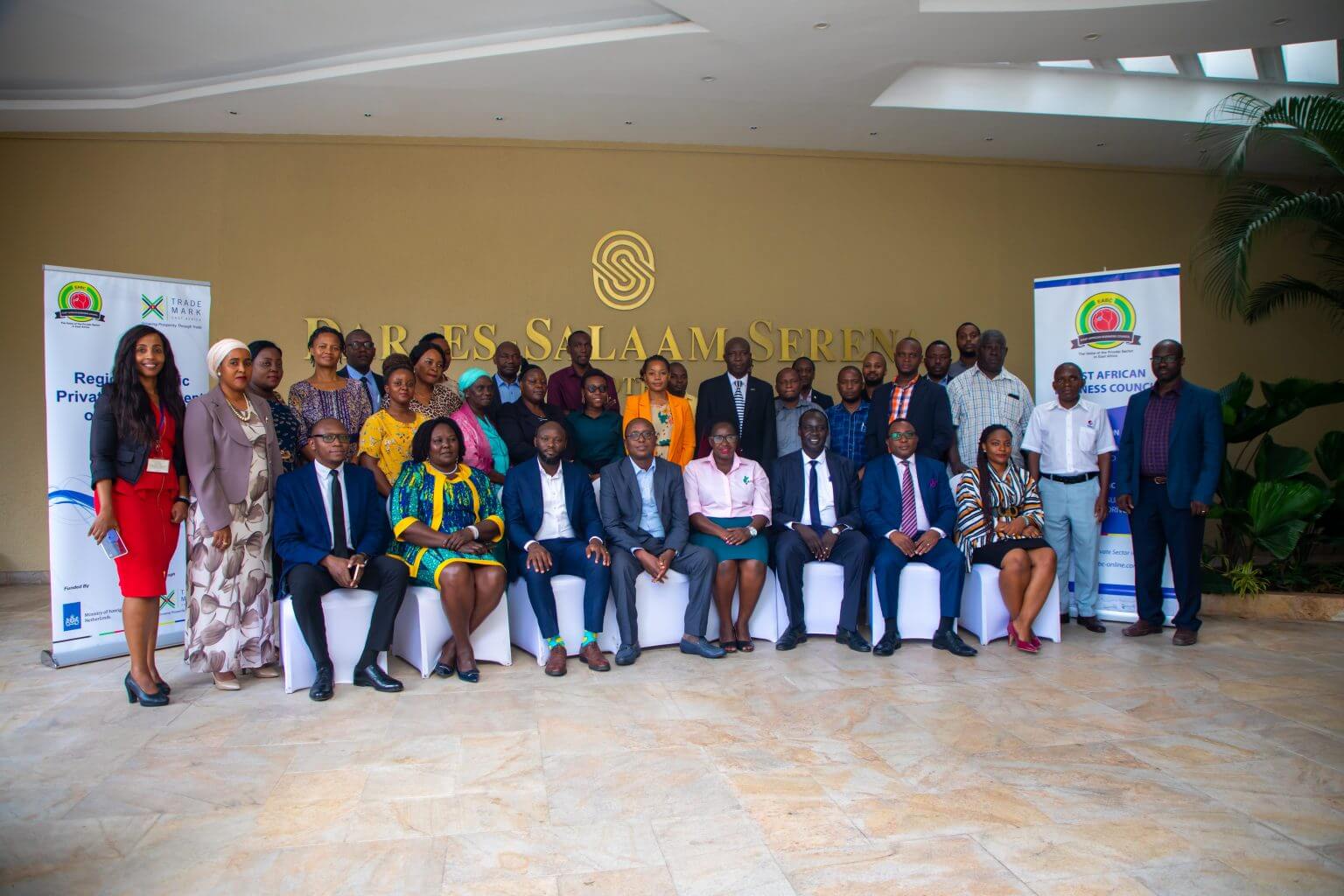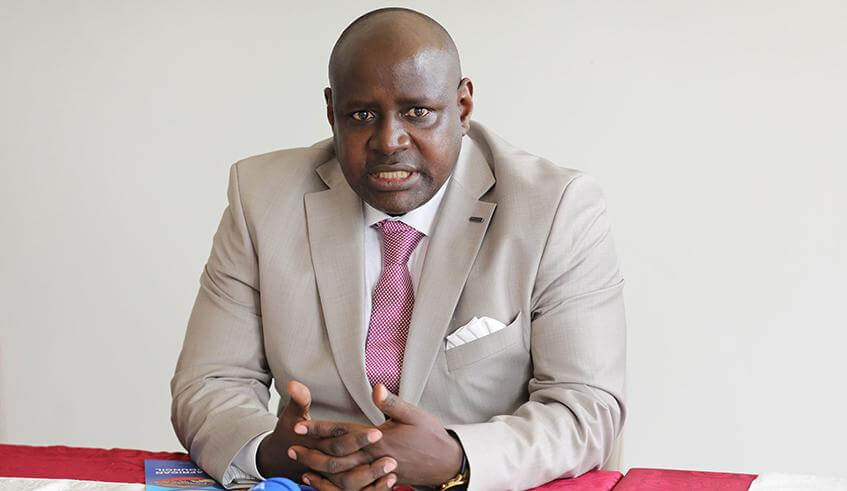East African Private Sector have urged Governments to for fast-tracked harmonisation of East African Standards during the EABC-TMEA Regional Public Private Engagement on Standards held in Dar es Salaam, Tanzania.
Evidence shows harmonization of standards has increased in intra-trade by 10%, reduced inspection & clearance costs at the border from USD. 500 to USD. 400 and clearance days from 10 days to 0.5 days.

Harmonisation of standards significantly contributes to growth of intra-regional trade, competitiveness, protection of consumers& environment and overall trade facilitation.
To date a total of 624 indigenous standards have been adopted by EAC Partner States and a total of 1880 standards have been earmarked for harmonisation at the EAC level.
Other notable reforms include: the establishment of the Regional Standards Plan (RSP) and an Online catalogue of harmonised standards has been developed since 2021.
The National Standards Bureaus in EAC Partner States are at different levels of harmonisation of standards ranging from 65% to 90%. More specifically Burundi and South Sudan have significant administrative and capacity challenges hence have note adoption of harmonised East African Standards.
John Bosco Kalisa, EABC CEO urged EAC Partner States to Fast-tracking adoption of the Standardisation, Accreditation and Conformity Assessment (SACA) Bill, facilitating frequent peer reviews, creating awareness and on East African Standards and involve private sector in development of the standards
Manufacturers have further call for a demand driven and low cost approach towards standards development in EAC. The Public Private Dialogue also explored on global perspective on the use of artificial sweeteners / Nutritive and Non-Nutritive sugar in manufacture of carbonated soft drinks, juices, confectioners and dairy products (yogurt) and their interlinkages to competitiveness and innovation.
The Regional Public Private Engagement on Standards is organized under the EABC-TMEA Public Private Dialogue Project for Increased Trade & Investments in the EAC, funded by The Netherlands.
Other Key issues raised include: reduction of the multiple inspections at the border, high standardization and compliance cost especially for MSMEs and revival of the East African Business Council Standards Platform to building common positions, identify constraints, priorities and enhance capacity on standards among private sector stakeholders.
The EABC-TMEA Regional Public Private Engagement on Standards convened Officials from EAC Secretariat, National Bureau of Standards, Manufacurers Associations, Association of Burundi Industries (AIB), Tanzania Women Chamber of Commerce (TWCC), Eastern African Sub-Regional Support Initiative for the Advancement of Women (EASSI), Kenya Private Sector Alliance (KEPSA), South Sudan Chambers of Commerce Industries & Agriculture, Private Sector Foundation Uganda (PSFU), Kenya Association of Manufacturers (KAM), CocaCola, and Watercom (T) Ltd.






